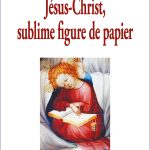Here we look at
a. the announcement to the parents of John the Baptist;
b. the heralding role of John the Baptist.
Future posts will continue this series.
| Annunciation to Zechariah and Elizabeth, Luke 1 | = Abraham and Sarah, the one aged, the other sterile. The announcement follows birth announcements in the Hebrew Bible (Genesis 18, Judges 13) |
| Luke 1:13, The angel of the Lord brings to Zechariah the announcement of the impending birth of a son to his barren wife (=messianic greeting) | = the terms appear to exactly follow those in Judges 13:3, delivered to the future mother of Samson. |
| Zechariah, of the course of Abia. | = Nehemiah 12:17 [The table cites Dubourg, L’invention De Jésus; Tome 2, linking the Luke passage to the order of priests in the new Israel after the return from Babylon. He quotes Neh.12:17 as “of [the course of] Abia, Zechariah”. But when I check Neh.12:17 I read, “of Abia, Zikri” [Zechariah = זְכַרְיָ֥ה ; Zikri = זִכְרִ֑י . There is Zechariah listed in Neh.12:16] |
| Elizabeth | Exodus 6:23, Elizabeth is a contemporary of Joshua (=Jesus). The name means God is an oath, or God holds fast. |
| Luke 1:17 “he will turn the hearts of the fathers to their children” | = Malachi 3:-24 This is the mission of Elijah |
| An important element, highlighted by Luke, is the doubt of Zechariah:
Luke 1:22, Zechariah will become dumb, mute, = kôphos |
In resisting the promise of the miraculous birth Zechariah acts like Abraham and Manoah:
= Ezekiel 3:26, Ezekiel becomes mute, LXX= apokôphôthesè |
| Luke 1:67-79, the blessing of Zechariah
(c.f. “to shine upon them who were sitting in darkness”) |
Quoting the prophecy of Isaiah 57:18, the blessing exalts “the star from above come to visit us” – in Greek: anatolè, the star which brings light, the rising sun – which also evokes the “sun of righteousness”, announced by Malachi, that “shines with healing in his wings”(4:2). |
| John the Baptist | = The first covenant, the synagogue, the Jews alone
= Malachi 5, “I send unto you Elijah the prophet, before the coming of the great and terrible day of Jehovah” + Sirach 48:10-11, “You are destined, it is written, in time to come to put an end to wrath before the day of the LORD, “To turn back the hearts of fathers toward their sons, and to re-establish the tribes of Jacob.” = the messianic times have come |
| Matthew 3:4, dressed in camel hair and leather belt | = Elijah = 2 Kings 1:8, “an hairy man, and girt with a girdle of leather about his loin” +
Zechariah 13:4, “the prophets … shall they be clad with a garment of sackcloth ….” (the message is that they will not dress this way to deceive with false prophecies) |
| Matthew 3:9, “And think not to say within yourselves, We have Abraham for our father. For I tell you that God is able of these stones to raise up children to Abraham.” | Babylonian Talmud, Berakhot 64a: “Rabbi Elazar said that Rabbi Ḥanina said: Torah scholars increase peace in the world, as it is said: “And all your children [banayikh] shall be taught of the Lord, and great shall be the peace of your children” (Isaiah 54:13). If all the children of Israel are taught of the Lord, there will be peace for all.” . . . “Do not read your children [banayikh], but your builders [bonayikh]. “ |
| John 1:27, “I am not worthy that I may untie the strap of his sandal.” | = Ruth 4:7, redemption is made by untying his sandal;
Deuteronomy 25:6-10, cf. John the Baptist says, “I am not the saviour” |
.
|
The table is primarily a translation and slight modification of pages 183-226 of Nanine Charbonnel’s Jésus-Christ, sublime figure de paper. All posts archived here.
|
.
Charbonnel, Nanine. 2017. Jésus-Christ, Sublime Figure de Papier. Paris: Berg International éditeurs.
If you enjoyed this post, please consider donating to Vridar. Thanks!


One slight problem with the John the Baptist tale, that is never confronted is how did he avoid being killed in the alleged Herodian Massacre being only about 6 months older than Jesus?
We are not told that John was born in Bethlehem (the target of Herod’s massacre) but he was born in “the hill country of Judea” (Luke 1:65). However, the Infancy Gospel of James (Protevangelium of James) happily assures us that John was indeed protected. Perhaps others were also asking how John escaped the massacre and this new gospel was written in part to give the explanation: